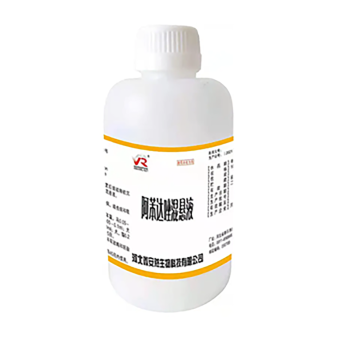- Afrikaans
- Albanian
- Amharic
- Arabic
- Armenian
- Azerbaijani
- Basque
- Belarusian
- Bengali
- Bosnian
- Bulgarian
- Catalan
- Cebuano
- Corsican
- Croatian
- Czech
- Danish
- Dutch
- English
- Esperanto
- Estonian
- Finnish
- French
- Frisian
- Galician
- Georgian
- German
- Greek
- Gujarati
- Haitian Creole
- hausa
- hawaiian
- Hebrew
- Hindi
- Miao
- Hungarian
- Icelandic
- igbo
- Indonesian
- irish
- Italian
- Japanese
- Javanese
- Kannada
- kazakh
- Khmer
- Rwandese
- Korean
- Kurdish
- Kyrgyz
- Lao
- Latin
- Latvian
- Lithuanian
- Luxembourgish
- Macedonian
- Malgashi
- Malay
- Malayalam
- Maltese
- Maori
- Marathi
- Mongolian
- Myanmar
- Nepali
- Norwegian
- Norwegian
- Occitan
- Pashto
- Persian
- Polish
- Portuguese
- Punjabi
- Romanian
- Russian
- Samoan
- Scottish Gaelic
- Serbian
- Sesotho
- Shona
- Sindhi
- Sinhala
- Slovak
- Slovenian
- Somali
- Spanish
- Sundanese
- Swahili
- Swedish
- Tagalog
- Tajik
- Tamil
- Tatar
- Telugu
- Thai
- Turkish
- Turkmen
- Ukrainian
- Urdu
- Uighur
- Uzbek
- Vietnamese
- Welsh
- Bantu
- Yiddish
- Yoruba
- Zulu
nóv . 04, 2024 20:39 Back to list
enrofloxacin injection 20
Enrofloxacin Injection 20 A Comprehensive Overview
Enrofloxacin injection 20 is a broad-spectrum antimicrobial agent that belongs to the fluoroquinolone class of antibiotics. It is primarily used in veterinary medicine to treat bacterial infections in various animal species. Its effectiveness against a wide range of gram-negative and some gram-positive bacteria makes it a valuable tool in the management of bacterial diseases in animals. This article delves into the pharmacology, uses, administration, and safety of enrofloxacin injection 20.
Pharmacology
Enrofloxacin works by inhibiting bacterial DNA gyrase, an enzyme critical for DNA replication and transcription. By disrupting this process, enrofloxacin effectively halts the growth and replication of bacteria, leading to their eventual death. This mechanism not only makes it effective against actively dividing bacteria but also helps in the treatment of infections caused by both aerobic and anaerobic bacteria. Due to its high bioavailability and distribution in various tissues, enrofloxacin is particularly beneficial for treating systemic infections.
Uses in Veterinary Medicine
Enrofloxacin injection 20 is widely used to treat a variety of infections in animals, including
1. Respiratory Infections Enrofloxacin is effective against pathogens causing pneumonia and other respiratory tract infections in livestock and pets. 2. Urinary Tract Infections (UTIs) It is commonly prescribed for animals suffering from UTIs, effectively targeting the responsible bacteria.
3. Skin and Soft Tissue Infections Infections resulting from wounds, bites, or abscesses can also be treated with enrofloxacin.
4. Gastrointestinal Infections Enrofloxacin can be used in certain cases to combat gastrointestinal infections caused by susceptible bacteria.
The versatility of enrofloxacin injection 20 makes it a go-to choice for veterinarians dealing with infectious diseases in animals.
enrofloxacin injection 20

Administration and Dosage
Enrofloxacin is typically administered via injection, with the specific dosage determined by the veterinarian based on the animal's weight, species, and severity of the infection. It is essential to follow the prescribed dosage regimen closely to ensure the efficacy of the treatment and to minimize the risk of developing antibiotic resistance.
The injection can be given intravenously, intramuscularly, or subcutaneously, depending on the clinical situation and the veterinarian's preference. It is crucial for animal owners to comply with the recommended treatment duration to ensure the complete eradication of the infection.
Safety and Side Effects
Enrofloxacin is generally well-tolerated in animals, but like any medication, it can cause side effects. Common adverse reactions may include
- Gastrointestinal upset, such as vomiting or diarrhea. - Reactions at the injection site, including pain or swelling. - Behavioral changes, like lethargy or restlessness.
While serious side effects are rare, they may occur. For instance, enrofloxacin has been associated with acute kidney damage in sensitive species, particularly in cases of overdosing. Additionally, enrofloxacin should not be used in animals that are known to have hypersensitivity to fluoroquinolones.
Veterinarians must evaluate the risk-benefit profile for each patient before initiating treatment, particularly in young animals and those with underlying health conditions.
Conclusion
Enrofloxacin injection 20 represents an essential advancement in veterinary medicine, providing an effective solution for treating a wide array of bacterial infections in animals. Its broad-spectrum activity, coupled with a favorable pharmacokinetic profile, makes it a preferred choice in many clinical scenarios. However, it is crucial for veterinarians and animal owners to adhere to proper dosing guidelines and monitor for potential side effects to ensure the health and safety of the treated animals. As with all antibiotics, responsible usage is vital to mitigate the risk of antibiotic resistance, preserving the efficacy of this valuable medication for future generations of animals.
-
Guide to Oxytetracycline Injection
NewsMar.27,2025
-
Guide to Colistin Sulphate
NewsMar.27,2025
-
Gentamicin Sulfate: Uses, Price, And Key Information
NewsMar.27,2025
-
Enrofloxacin Injection: Uses, Price, And Supplier Information
NewsMar.27,2025
-
Dexamethasone Sodium Phosphate Injection: Uses, Price, And Key Information
NewsMar.27,2025
-
Albendazole Tablet: Uses, Dosage, Cost, And Key Information
NewsMar.27,2025













